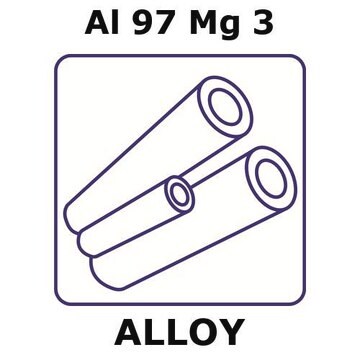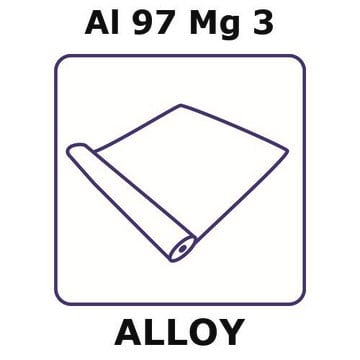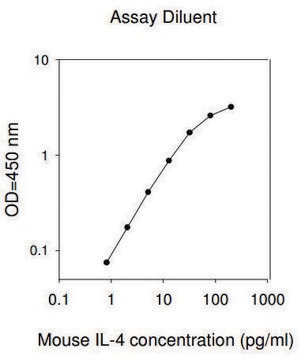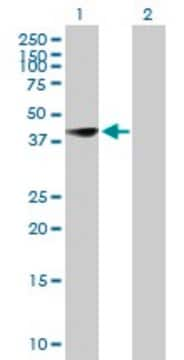推薦產品
化驗
99.95%
形狀
tubes
製造商/商標名
Goodfellow 574-094-54
電阻係數
1.673 μΩ-cm, 20°C
bp
2567 °C (lit.)
mp
1083.4 °C (lit.)
密度
8.94 g/mL at 25 °C (lit.)
SMILES 字串
[Cu]
InChI
1S/Cu
InChI 密鑰
RYGMFSIKBFXOCR-UHFFFAOYSA-N
一般說明
For updated SDS information please visit www.goodfellow.com.
法律資訊
Product of Goodfellow
分析證明 (COA)
輸入產品批次/批號來搜索 分析證明 (COA)。在產品’s標籤上找到批次和批號,寫有 ‘Lot’或‘Batch’.。
Donita C Brady et al.
Nature, 509(7501), 492-496 (2014-04-11)
The BRAF kinase is mutated, typically Val 600→Glu (V600E), to induce an active oncogenic state in a large fraction of melanomas, thyroid cancers, hairy cell leukaemias and, to a smaller extent, a wide spectrum of other cancers. BRAF(V600E) phosphorylates and
Jonas Duus Stevens Lekfeldt et al.
Environmental pollution (Barking, Essex : 1987), 194, 78-85 (2014-08-06)
Copper (Cu) is known to accumulate in agricultural soils receiving urban waste products as fertilizers. We here report the use of the leucine incorporation technique to determine pollution-induced community tolerance (Leu-PICT) to Cu in a long-term agricultural field trial. A
Julie E Gleason et al.
Proceedings of the National Academy of Sciences of the United States of America, 111(16), 5866-5871 (2014-04-09)
The human fungal pathogens Candida albicans and Histoplasma capsulatum have been reported to protect against the oxidative burst of host innate immune cells using a family of extracellular proteins with similarity to Cu/Zn superoxide dismutase 1 (SOD1). We report here
Alina Fedoseienko et al.
Annals of the New York Academy of Sciences, 1314, 6-14 (2014-04-05)
Copper is an important cofactor in numerous biological processes in all living organisms. However, excessive copper can be extremely toxic, so it is vital that the copper level within a cell is tightly regulated. The damaging effect of copper is
Adam Southon et al.
Metallomics : integrated biometal science, 5(10), 1346-1356 (2013-08-02)
Copper (Cu) is an essential redox active metal that is potentially toxic in excess. Multicellular organisms acquire Cu from the diet and must regulate uptake, storage, distribution and export of Cu at both the cellular and organismal levels. Systemic Cu
我們的科學家團隊在所有研究領域都有豐富的經驗,包括生命科學、材料科學、化學合成、色譜、分析等.
聯絡技術服務






